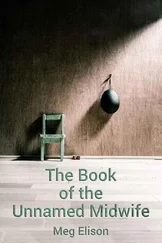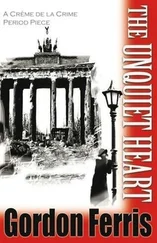“I was scared when I woke up,” she said. “I didn’t hear you get out of bed.”
“Why were you scared?”
“I don’t know,” she said.
The kitchen at that hour was a place of drift and small preparations. The milk and the sugar bowl and the jars of jam and the butter dish were laid on the counter, and when the toast popped up they dressed it, and when their coffee ran low they refilled it. She preferred a delivered paper, in part so she could do the crossword but also for its fresh inky smell, second only to coffee as an announcement of a new morning. She liked the physical touch of the pages and the sense of fullness that having it all in front of her gave her, a containment of the world. He ate his toast and she peeled a tangerine and they talked of what they were reading, sharing parts the other had not yet gotten to. They added a little commentary if something seemed outrageous or, more common, all too predictable, and sometimes one of them reached across the counter and briefly touched the other, as in good morning, and smiled, and then went back to reading.
At some point one of them got up and started to put the lids back on the jars and to move the dirty dishes into the sink, and the other, not to be hurried, finished whatever article had been started before standing and replacing the lid to the butter dish and collecting the crumbs off the countertop and moving them to the garbage below the sink.
“Do you have a showing today?” he asked.
“Too many,” she said. “Although look at that.”
He peered out the window. “Another beautiful day,” he said.
“If it keeps up—”
“Let’s hope it keeps up.”
“Then we can do something this weekend.”
A few years prior he had found a job as an adjunct professor teaching a class on mediation at Columbia, and now she said, “You have class today?”
“At three,” he said.
He rinsed the dishes and placed them in the dishwasher and heard the water going as she prepared to take a shower.
He was back at the counter looking at the Internet when she came in dressed for work. She told him the tub was still leaking and now seemed to be draining slowly, and he said, “The one-two punch.”
“Let’s just call a plumber,” she said.
“Where do you want to have lunch today?” he asked.
Later that day at an early lunch they talked about what had transpired since breakfast, which was nothing, really, but they still talked as if they hadn’t seen each other in a while. They had lived another half a day and that time had gone by without incident and they were together again, and this alone made them talkative. Then, after paying the bill, they walked to the back of the restaurant as they did once or twice a week, sometimes more, first her, followed by him, and entered the same door and locked it, and sometimes they did it with her on the sink and sometimes they did it against the wall. The illicit risk, the appeal of the fear of being suspected or caught, never attenuated or grew stale, and they knew that to make things really exciting, they needed only to change the tempo and slow everything down and stare intently at each other and stay in there much longer than anyone ever should. Then they left the bathroom just as they came in, her first, followed by him a minute later, keeping their eyes fixed on the exit until they were outside again.
“Well,” he said. “That was fun.”
“Have a good class,” she said, kissing him modestly on the cheek.
“Good-bye, banana,” he said.
“Good-bye, banana.”
She troubleshot the downpour that descended on the city by slipping inside a Starbucks, where she bought a latte in exchange for temporary shelter. All the tables were full and the show of the tempest out the window was standing-room only when things really got going. Everyone watched it as they would some gripping season finale. The only sounds not of the storm were of order calls and cries from the espresso machines. Outside it was torrential. The skies were all drumspit and fury and made her feel a child’s awe at the natural world, even if her view was only of stalled taxis and whipped awnings and water flowing over a slanting putty-colored pavement. She waited half an hour until the contentious storm eased back a little and she could wait no longer. Then she reentered the street with a small umbrella that went sailing in the wind and proved as ineffective against the driving rain as a kite on a string. Her heels hit every pothole and puddle and curb-hugging rapid and she felt dog-wet and slimy when she entered the lobby running woefully late.
The man she met there was an art dealer named David. David owned two galleries, one on Tenth Avenue and the other in London, and he came to her as her other clients did, by referral. He was sitting on a leather sofa under a softly lit sconce and rose to greet her when she walked in. She apologized for being so wet. He wore a tailored suit with a linen shirt, no tie and an open collar, and did not appear to have a single drop on him. She wanted to ask what portal he had emerged from, but instead they made small talk and then went up together in the elevator.
She took him around the apartment, a seven-room duplex with a wall-to-wall view of the Hudson, a wine pantry, a professional culinary kitchen, and it dawned on her, slowly, as they drifted through the impeccable rooms filled with the occult light of a sky gone prematurely dark, and talked casually about the place, with none of the usual tension that characterized conversations during walk-throughs with prospective buyers who tended to think you were lying about every I beam and faucet — it slowly dawned on her that this man, David, was of that type, on account of his shoulders and full head of hair, his two days’ growth flecked with gray on the chin, and the bright blue of his intelligent eyes, that he was of the type she found tempting. He would have been a temptation. Five or six years ago, he would have been better than a drink. If a man like David had pressed himself on her five or six years ago, she might have avoided drinking altogether.
They talked over the details of the building’s recent renovation and she pointed out the best features of each room. She did most of the talking but when they turned silent again and his attention was elsewhere, she looked at him intently. He reminded her of other men she had encountered in passing, infrequently and always fleetingly, who in their wake left her feeling reckless and intense, afraid of what she was capable of. They brought out in her a longing that stayed with her for a day or two, like a particularly vivid dream, until it began to fade and was finally forgotten. As they continued through the rooms, she started to feel giddy and romantic. Just to indulge a fantasy, she pretended that they were looking at the place together, that she knew everything there was to know about contemporary art, that her name was not Jane, that she went to parties with painters and eccentrics, and that as they looked at each room, they wondered what piece would go best on what wall. Then she returned to earth, smiled at David, and told him that she would wait for him in the kitchen while he had a chance to look over the place on his own.
She was staring out at the grim day through the window overlooking the river when he came down the spiral staircase. The steps were white and curved and reminded her of the wings of a swan. She turned and watched him descend the final few steps. He clapped his hands together and rubbed them hungrily. “I’m going to put a bid in,” he said.
“On the first one you’ve seen?”
“I love it,” he said. “And I’m very impulsive.”
“Well,” she said, “that’s wonderful.”
They talked about what his initial offer should be and what she thought they could get the developer to come down to. He wanted it badly and suggested starting at the listing price minus ten percent, but she knew that the developer was having a hard time selling and suggested that he start at minus twenty and go from there. He thanked her for the advice and after going over a few more formalities, they left and she locked up.
Читать дальше












